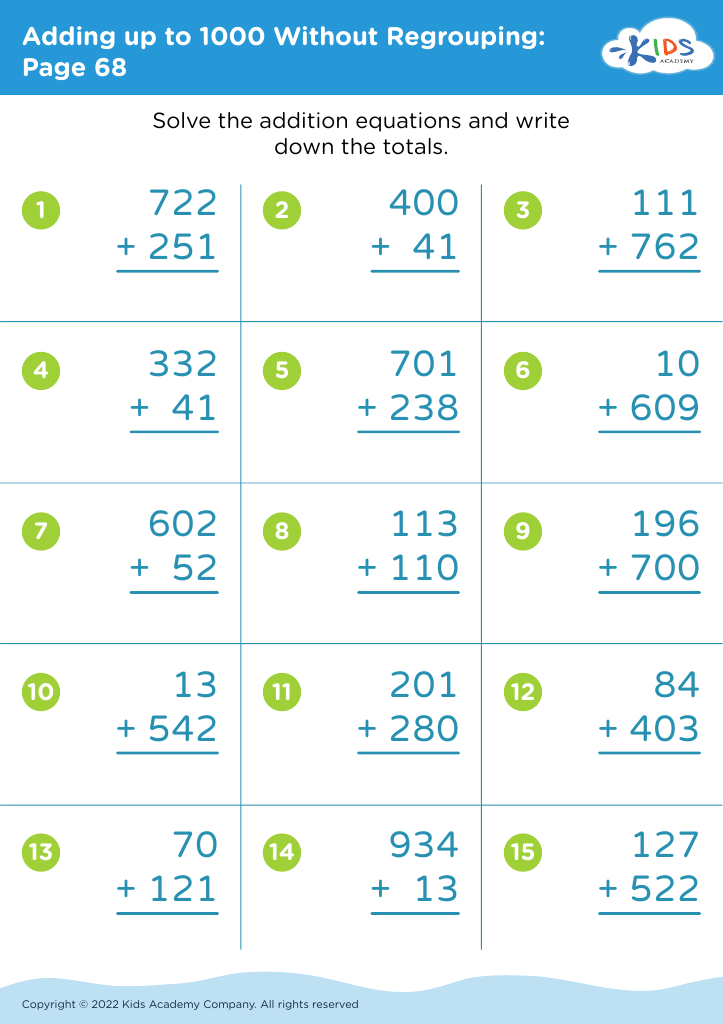Understanding number sequences Addition Worksheets for Ages 7-9
3 filtered results
-
From - To
Help your child master the fundamentals of addition with our "Understanding Number Sequences Addition Worksheets" designed for ages 7-9. These engaging worksheets guide young learners through the basics of number sequences, enhancing their math skills in a fun and educational way. Each activity is thoughtfully crafted to reinforce the concept of sequential addition, laying a solid foundation for more advanced math topics. Ideal for classroom use or at-home practice, these worksheets are perfect for helping kids build confidence and succeed in mathematics. Start your child's journey to math proficiency today with Kids Academy's expertly designed resources.
Understanding number sequences and addition is vital for children aged 7-9 as it establishes a fundamental component of their mathematical foundation. At this age, children are developing their cognitive abilities and forming the building blocks for more complex mathematical concepts they will encounter later. By mastering number sequences, children can improve their ability to recognize patterns, which is essential for problem-solving and logical thinking.
Moreover, grasping the concept of addition lays the groundwork for arithmetic operations that follow, such as subtraction, multiplication, and division. When children learn to add efficiently, they also develop their number sense, which is the ability to understand, relate, and connect numbers and number relationships. This number literacy is crucial for everyday tasks, such as making change, measuring, and time management.
For parents and teachers, fostering a solid understanding of these concepts can also boost children's confidence in their math skills, encouraging a positive attitude towards learning and reducing anxiety related to mathematics. This subject is foundational not only for academic success in schooling but also cultivates critical thinking skills that children will use throughout their lives. Engaging children with games, practical examples, and consistent practice in number sequences and addition can make learning enjoyable and effective.





.jpg)













